There´s no doubt that red tape is getting worse by the day. I don´t know how many explorer friends I have, who can´t get into an area and explore as they´d wish due to silly and un-necessary bureaucracy. This plague is of course nothing new in exploration history, but with all the technical developments we are experiencing and by the day more global transparency due to the Internet, one would think it would become easier. Unfortunately not. It is getting worse. Much worse. So, when CuChullaine O´Reilly sent me the piece below, at first I thought it was really alarmist, but I also know how thorough CuChullaine is in his research and he always finds angles that very few others would, and the more I read it, there´s definitely something the exploration world should consider and be aware of. However, as always when it comes to the Guest Writers, their opinions are theirs and not mine.
Will Explorers be re-defined as Terrorists?
By
CuChullaine O´Reilly
I have just completed chapter 52, “Guns & Trouble,” in the “Encyclopaedia of Equestrian Exploration.” The project is currently up to 1000 plus pages, and includes more than 500 images to date.
The majority of people would expect a book about horse travel to focus on spurs and saddles. That has certainly been the narrow focus of the few books written about this topic in the past. In stark contrast, the Encyclopaedia is designed for 21st century equestrian explorers. In addition to containing information on how to choose horses, etc., it is the first book of its kind to deal with a host of modern problems which did not plague our equestrian forefathers.
For example, most nations only issue transit papers for horses that are destined to cross their country via a truck and trailer. These papers, usually valid for ten days, provide adequate time for a driver to deliver the horse to a competitive event. Yet such short-term transit papers do not provide time for a Long Rider to journey across an entire country.
The need for personal security has also changed. Long Riders are no longer being murdered by rampaging Indians. Today they have to be careful that their blogs do not provide cyber stalkers with information that will allow them to locate, then attack and/or sexually assault, a lone equestrian traveller.
Nor are Long Riders only interested in pack saddles. Like other members of the international exploration community, they too rely on a variety of up to date electronic equipment. This too has brought unforeseen complications.
Because the Guild has Members in 44 countries, we must constantly remind foreigners that Hollywood’s version of the American “Wild West” is not valid. In fact, the Encyclopaedia explains that in a pending court case, the U.S. government has argued its authority to protect the country’s border extends to looking at information stored in electronic devices such as a laptop. Even though the computer owner may not be suspected of a crime, when crossing into the United States, officials regard a laptop the same as a suitcase and can search it without obtaining a warrant. See this report!
Nor is this the only indication of a dramatic change in the American political climate.
In the Encyclopaedia I warn foreign Long Riders of draconian new laws which have taken effect in America. For example, the United States Supreme Court has ruled that anyone can be strip-searched upon arrest for any offence, however minor, at any time. History demonstrates that the use of forced nudity by a state is powerfully effective in controlling and subduing populations. This legislation joins the National Defense Authorization Act (NDAA) which lets anyone in America be arrested forever at any time and HR 347, the “trespass bill”, which gives you a 10-year sentence for protesting anywhere near someone with secret service protection. See here!
While these topics will be of long-term interest to equestrian travellers, my research has revealed an interesting/alarming idea which I believe may be of immediate concern to the international exploration community.
In an article in the English press I came across this quote.
“…..the US Anti-Terror Law judges the provision of medical aid to ‘terrorists’, or negotiation with ‘terrorists’ to gain access to wounded, starving or destitute civilians, to constitute a major criminal offence. This has actively removed any identifiable ‘neutral’ status for doctors, nurses or allied health professionals in battlefield, conflict or famines zone. You are either for the ‘terrorists’ or against them.”
I believe there is a danger to exploration hidden within that paragraph.
The American government has announced that it can arbitrarily define as a “terrorist” any doctor or nurse who aids a wounded human. In such cases a victim’s politics overrules his physical suffering.
Thus, for the first time in history, it appears that the neutrality which all civilized nations have traditionally granted to the medical profession has been violated by the Americans.
If doctors can now be classified as “terrorists” by the “land of the free” are explorers next?
Consider the dramatic shift this might hold for exploration.
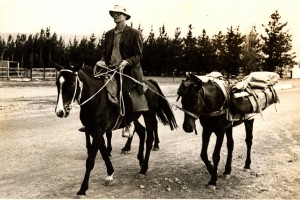
In the past native people had good reason to be wary of strangers posing as explorers who passed through their country uninvited. Such missions, though carefully cloaked under a disguise of geography, were often closely connected with an imperial power’s intelligence service.
For example, in 1906 Baron Carl Gustaf Mannerheim set off on a 14,000 kilometre-long, two-year ride for the Czar. The sharp-eyed cavalry officer spoke Polish, Portuguese, Mandarin Chinese, Swedish, Finnish, Russian, French, German and English. The mounted espionage mission took him fromAndizhan in Russian Turkistan toPeking,China. During the ride Mannerheim gathered information on various tribes, befriended the Dalai Lama, surveyed obscure mountain passes, and scoutedChina’s Great Wall, before heading back to share his findings with the Russian government.
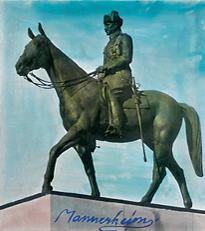
But the hiking boot is now on the other foot.
Instead of the natives suspecting the explorer of being a spy, by stripping an explorer of his neutrality and punishing his impartial interaction with the local populace, the Americans have set the stage wherein we may soon see travellers accused of being involved with, or sympathetic to, “terrorists.”
Is such an idea far fetched?
French Long Rider Louis Meunier recently made an extensive journey through Afghanistan. Because Louis is a fluent Farci speaker, he interacted with countless Afghans along the way, including at least one respected local mullah. That incident involved the mullah invoking a blessing on the Long Rider’s horses.
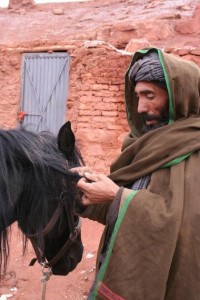
But what if the interchange about Afghanistan’s equestrian culture had turned suddenly political? Could Louis’ participation in a local conversation with the mullah have rendered that traveller a suspect if the Taliban perpetrated acts of political subversion in the area?
What are the implications for explorers who wish to visit countries rocked by political instability, ie Afghanistan, Burma, Eritrea, Kashmir, Mali, Somalia, Syria, Tibet, Yemen, just to name a few?
Arita Baajiens is the Dutch camel traveller who explored the deserts of Egypt and Libya. When rebellion broke out across the Arab world in 2011, the desert traveller found herself swept up by the political storm. “Those kids really pulled it off,” Arita reported to ExWeb from Cairo’s Tahir Square.
Washington maintained a guarded neutrality when dissident citizens toppled Egyptian tyrant Hosni Mubarik. Likewise they ignored Arita’s actions inCairo because it suited their political purposes.
What if Arita interviewed pro-Iranian Shia protestors who are currently trying to topple the pro-American Sunni government in Bahrain?
Could a chance conversation between the Dutch explorer and a politically active student result in statements being voiced which, being in opposition to official American foreign policy, carry an automatic condemnation for the traveller?
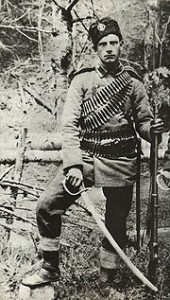
In addition to being a leader of the movement to restore exploration’s previous prominence within the Royal Geographical Society, British explorer Alistair Carr has travelled by camel in theSahara. On one occasion political rebels served as his guides.
Last month pro-Islamic Tuareg rebels seized control of the historic caravan city of Timbuktu. IsWashington prepared to dictate terms to explorers like Alistair who venture there? Will the American government decide that interactions between travellers and native guides counts as evidence of “support for terrorists”?
Could explorers become victims of political entrapment? News stories are revealing how well-paid informants are employed by the American CIA, British MI5 and the Saudi intelligence service, the Mabahith. Is there cause for concern that explorers might be lured into situations that compromise their traditional neutrality?
Who would know, you might ask?
The US Army is preparing to deploy in Afghanistan its latest helicopter-style drone, the A160 Hummingbird, equipped with 1.8 gigapixel colour cameras. Able to hover, unlike current drones, it will have unprecedented capability to monitor activity on the ground. It can track people and vehicles from above 20,000ft, and with a 65sq-mile field of view, it will have 65 steerable “windows” able to follow separate targets.
A government capable of spying on a unsuspecting traveller’s conversations can then use any images of interaction with natives as evidence of support for terrorism.
Nor does this problem reside solely with the individual traveller, as organisations which endorse explorers may also be caught up in this international net of intrigue.
Swedish explorer and Long Rider Mikael Strandberg has just arrived in Yemen, where he is preparing to set off on a perilous camel expedition across that war-torn country. Mikael is carrying flags from the international Long Riders’ Guild and theNew York based Explorers’ Club.
Given the highly volatile political climate in Yemen, what are the chances of Mikael journeying across that nation and not encountering a conversation which includes political themes and voices of dissidence?
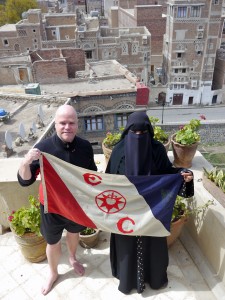
If this explorer is, by default, “caught” talking to people who are politically sympathetic to Al Qaida, are the two exploration organizations which support Mikael’s journey also culpable of “supporting terrorism”?
These are troubling times and disturbing scenarios.
Members of the medical profession, as well as prominent advocates of civil liberties in theUnited States, are deeply concerned at the tremendous erosion of civil rights and basic liberties which political events have inspired.
In the past all civilized nations recognized, and respected, a doctor’s neutrality. He was, it was previously believed, acting for the good of humanity, before supporting any political cause.
That sense of international trust was based upon the Hippocratic Oath, which bound the medical professional to “remain free of all intentional injustice and mischief” regardless of where he might find the wounded or sick.
Likewise, the political neutrality of the explorer is also taken on trust.
Sadly, given the aggressive nature of new American legislation, we may be witnessing the demise of the traditional respect accorded to citizen-explorers.
Respectfully yours,
CuChullaine O’Reilly
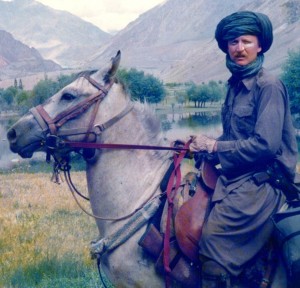
CuChullaine O’Reilly is the Founder of the Long Riders’ Guild, the world’s international association of equestrian explorers and a Fellow of the Royal Geographical Society and the Explorers’ Club. Author of “Khyber Knights,” he is currently completing the “Encyclopaedia of Equestrian Exploration.”
Please vist The Long Riders Guild and The World Ride
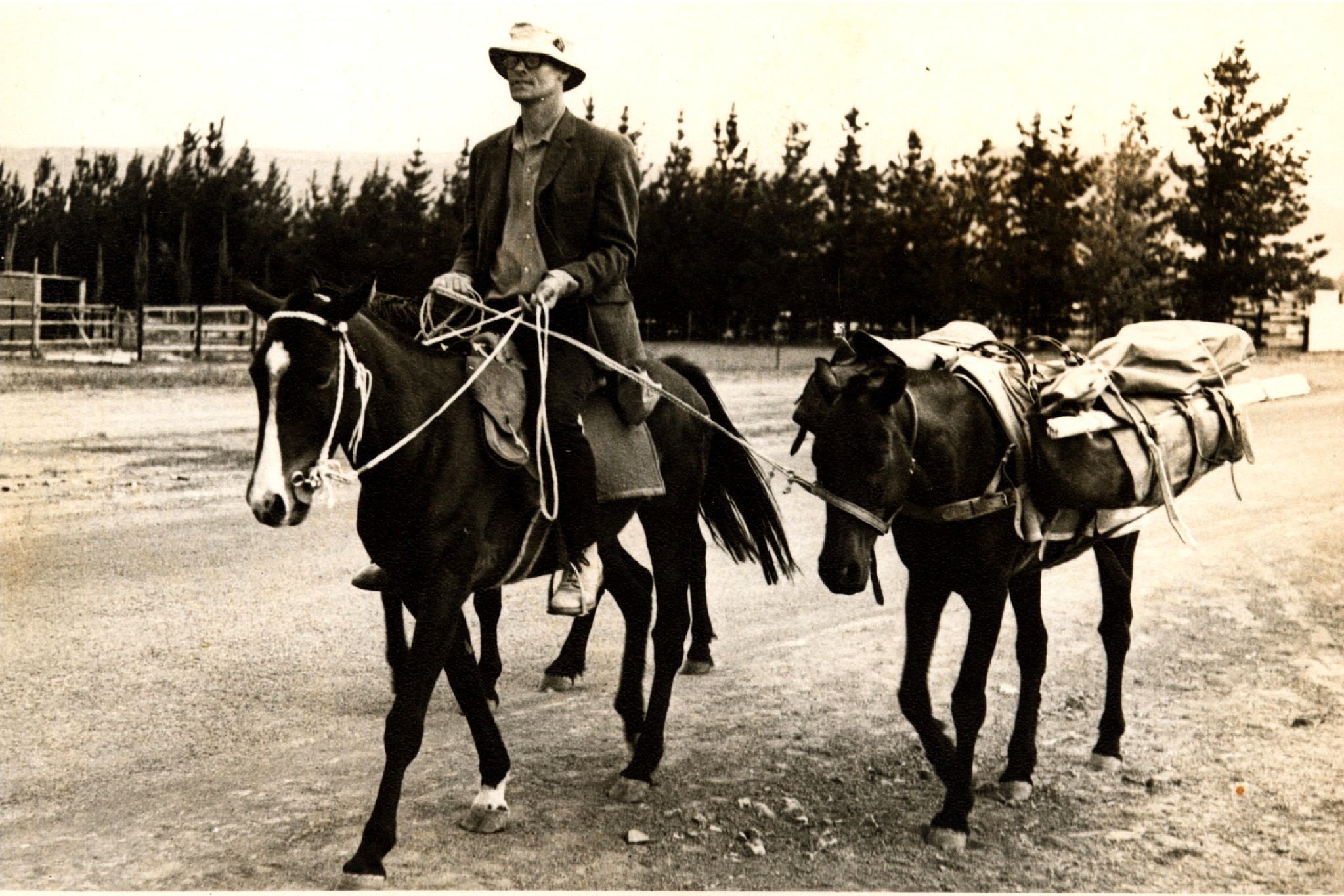
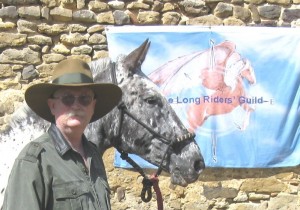

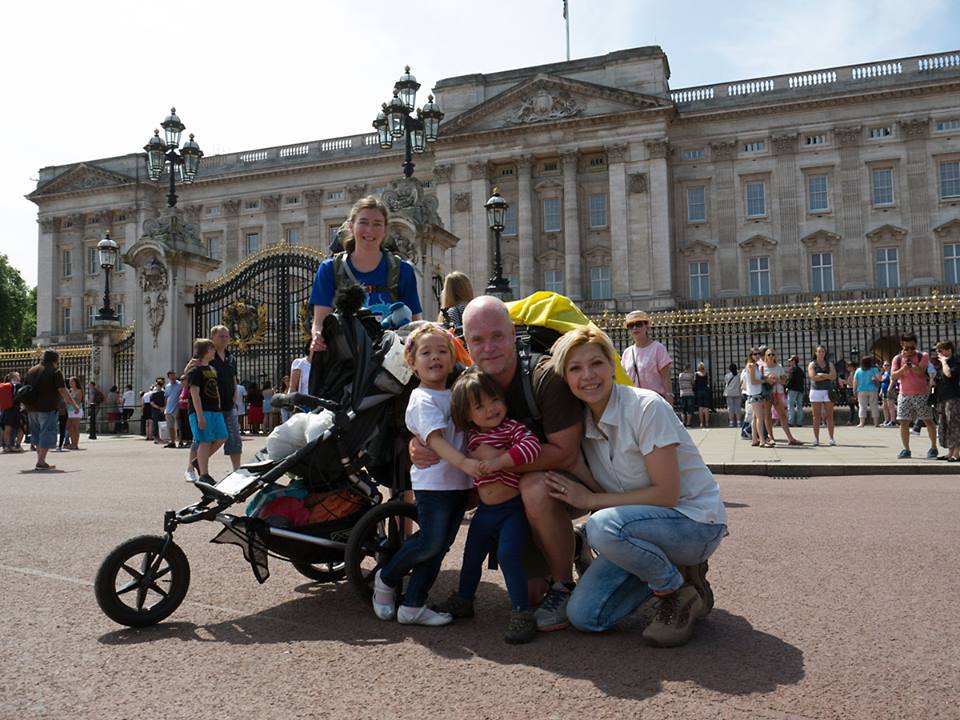
I am an American and I have seen these changes in my country’s policies since the September 11, 2001 attacks when I was 18 years old. My Ethiopian friends have had really difficult times securing travel visas to Europe and America, and I, a born-and-raised US citizen, was questioned by border patrol officers upon my arrival in the US after living in Ethiopia on a US Government contract. Security is getting tighter and tighter.
I understand the real threat of terrorism to America, but I’m wondering as I get older where the line needs to be drawn between security and dignity. The only way to really prevent terrorism, in my opinion, is for us to show the world that we are a compassionate and understanding nation, and to learn about the other ways of life of people around the world. To an outsider looking in, America may not seem compassionate or understanding.
When I was cycling through Ethiopia, I was on a road near the border with northern Somalia and became lost. A truck with a dozen Somali men carrying machine guns and several hundred kilos of the narcotic Khat pulled up next to me and asked if I was ok. I showed them my map and they gave me directions. They were very polite and helpful. In the eyes of the US government, these men might be suspicious or even criminal, but I had no interest in their destination, and they helped me reach mine. I hope these interactions are helpful in the grand scheme of international relations.
On the flip-side, I can speak Amharic, but when speaking to Ethiopian officials, I spoke English. I found that officials became alarmed when the American could speak their native language. Maybe they thought I was a spy, myself.
Policies will change, borders will open and close and leaders will rise and fall. Hopefully explorers, tourists, travelers, reporters and aid workers can keep the big picture in mind and keep building meaningful relationships with people around the world. Let’s show everyone that a nation is more than its government, its military or its media. We are all human beings. We are all different. But we are 99% good people.
Cuchullaine’s article is interesting but all it really highlights is that today’s difficulties are different from yesterday’s. Also, he is a white American and therefore sadly lumped together with the assholes that govern the US (yes, I know, but Obama notwithstanding the US is largely white-governed). Vote them all out! The effects of this are sometimes felt by white non-Yanks but not to a huge extent. Britains, because their country tends to be identified with US policies – which is a stupidity on our part – can also suffer a bit. I have encountered the 10-day transit nonsense, so you ignore it and just keep going, if you can’t get around it. Crossed France that way! My experience is that as long as you are friendly and polite and wherever possible learn the custom of the people, e.g. whether or not to use a firm or loose handshake; whether or not to look a person in the eyes and also learn a few expression of which please and thank you are probably the most important, then usually you will be fine. Not flaunting valuable items would just be common sense, of course. It is quite unnecessary to burden yourself with quantities of electronic gear, though of course you m ay choose to do so. Personally I see no need and most of it detracts from what you are experiencing (I even found a camera a distraction but that is the one item I would always take). I have to say that America was in some ways a huge disappointment (and this was pre-the twin towers). I have never seen so many ‘no trespassing’ signs in any other country and it would have helped to know tht the’land of the free’ is not. Most Americans were great people though, especially the Indians, and could not have been kinder or more helpful.
To conclude a rather long comment, I am nothing like as pessimistic as Cuchullaine, in spite of the utter nonsense his country indulges in. In fact, I thought this piece bordered on paranoia! We used to have a saying, amongst the crew of the company which I drove around the Sahara and Sahel with back in the 70’s: “If you come to silly places, you must expect silly things.” That is sure still to be true. I would suggest that good manners and infinite patience are the most crucial things. Also, work on the basis that you always have more time than ‘they,’ i.e. officials and bureaucrats, do – they will give in before you do! This does not entirely cover real trouble but unless you are facing a firing squad, it helps there too.
Interesting stuff! I have made long horseback journeys in Mongolia, Tibet and Afghanistan. In Mongolia I encountered paranoid local officials who tried to stop my journey but were then quite happy to turn a blind eye and let me ride away.
It was different in Tibet where I was arrested by the Chinese authorities who confiscated my horses and placed me under house arrest, I however escaped and bought more horses, was caught again, escaped again but was eventually expelled from the country, I went back two years later and finished the ride.
The recent laws passed in the US are common place in China but as CuChulliane said not what one would expect in the Land of the Free, in particular doctors and nurses being unable to treat the injured flies in the face of everything the medical profession stands for not to mention what we as compassionate human beings stand for!
Some of the points mentioned seemed to amount to ‘guilt by association’. A French friend I met in Afghanistan believed that his phone was being listened to by the French Secret Service and so often changed numbers and SIM cards, I’m sure there is a file on him in Paris as he was so deeply involved in Afghanistan, and anyone who is is bound to be looked at.
As for Tibet, where few human rights exist, I will never know if I have been black listed until I apply for a visa. I doubt the Chinese are that well organized anyway, they weren’t when I was expelled in 2002 but returned in 2004 with no trouble. However, since then I have published a book on my trip, had anti-Chinese letters published in New Zealand’s largest newspaper and taken part in Free Tibet and Anti-Chinese protests. If the Chinese are organized they must surely know who I am and I would expect to be refused a visa, if I ever do return I would apply for a visa somewhere other than in New Zealand, Hong Kong for example where they process thousands of visa a day.
All this brings the case of Daniel Robinson (look for his story on the Long Riders Guild website) to mind again, his innocent/lifesaving mistake was seen as a threat to India’s national security, which was rediculous, did they think he was going to drive explosive packed mules into the Taj Mahal?
One can only hope that those in power will realise that just because a traveler of any kind travels in a land where there is terrorism, or even meets with terrorists on their travels, that does not necessarily mean the traveler is a terrorist! We can only hope!
I would like to make an appeal to David Renwick Grant regarding his comments charging CuChullaine with “bordering on paranoia”. In both Mongolia and particularly in Kazakhstan, (I was traveling with nomads), we were, for the most part, not met by friendly, hand-shaking, eye to eye acknowledgments. In Mongolia, from day one, rumours circled that we were riding stolen horses (mainly because that activity is a local pastime there). And more seriously, in Kazakhstan (again with nomads,) we were questioned on an ongoing basis by the law (police who continually stopped us to search our horse papers, passports, question us and view our belongings), or by locals who considered that we were “probably” thieves or criminals who had arrived “from the outside” and might be “escaping, on horseback”. There is no tourism in the greater part of Kazakhstan, so the chance of simply relying only on a quick test to see if there might be friendly or polite interactions happens rarely. David, are you missing the point of CuChullaine’s article?
A friend who worked years in the anti-doping branch of the international Olympics warned before my first trip there: “you know they intercept outgoing text messages in Kazakhstan don’t you?” I took this to heart because, of course it makes sense that any government overseeing a country where Wild West ethics rule – takes precautions. Speaking of paranoia, if the USA or England had a history as gruesome as Kazakhstan’s past, (in particular, during the Stalin era) it would definitely make for a certain amount of suspicion by the now ruling government. The fact is – we are not taught firsthand about the history of many of these countries and arrive with very little idea about how troublesome it is for the people living in those places. Their experiences defy all rules as we know them. So, bizarre rules get set. And now it seems evident that the US, floundering in a threatened world, is also grasping at straws.
I was particularly taken aback after reading Louis Meunier’s experience with Mullah Khodadad. It was only days after I was into my first ride with shamanistic-believing nomads in Mongolia that I could see the risk presented by unimaginable ideas these characters had. As ridiculous as things seem from the outside – such beliefs and situations are very real to these people and can lead to complications for which the outsider has no way out.
I cannot tell you the countless times I have been asked at airports by customs officers: “are you travelling alone?” And adding something like: “and what were you doing in Kazakhstan (or any other place stamped there) for so long?” I always walk away from these situations wondering what in heaven’s name they could possibly be thinking, but I have never been harassed and cannot possibly imagine the psychological implications if I were to ever be innocently incriminated.
After 911 when the USA began to enforce strict rules at border crossings, there were endless YouTube segments made by Canadians who were seriously intimidated – unnecessarily.
But what is especially disturbing is the news CuChullaine reported on about the Anti-Terror Law in which it is unlawful for professionals in medical care to aid any wounded human for reasons of his or her (supposed) opposing political belief.
Delving into history books we can learn what human beings and governments are truly capable of, therefore I believe CuChullaine is making important warnings that must not be overlooked or treated lightly.
The designers of such decisions are only shooting themselves in the foot in the long run. All these types of repression will only lead towards people turning against what they are setting out to protect and eventually not only will it be the terrorist that are fighting but it will be there own people turning against one another. How far will they go and how far will we let them get away with it. Perhaps one day we will be striped entirely from sival liberties and moulded into a controlled reality just as predicted by the science fiction writers.
The governments through out this world have in history fooled people in believing that they are doing the right thing.
In the 90s the neo conservatives came to the conclusion in that the general populous of America was falling into disorder. Wide spread social disruption,crime, families falling apart and an epidemic use of drugs. They came up with the idea that by creating a constant common threat, fear/Terrorism would unite the nation as it has done during war time. This designed orchestration to insight the Muslim world has unleashed the dragon and now what we are all subjected to our sival liberties being constantly striped away. The governments control us through technology which we are all being seduced by. You could call it a new world order or perhaps a new world Google order! We are heading if not already in george orwell s 1984.
The British Priminister Tony Blair was determined to convince the public to go to war with Iraq because of the so called threat of weapons of mass destruction.
Two weeks before the parliament debate, a story broke out in the news of 3 muslim students found in a flat in south London with a labuortry producing a deadly substance called Ricin, a test tube full of Ricin was enough to kill every person in a 1 mile radius.The bioterrorrisum threat became so real that the government cordoned off a mile square radius in central London for a exercise for the military and emergency services in preparation for a chemical terrorist attack. Concern for personal safety city workers emptied suppliers of gas masks and chemical warfare suits! The media went wild with this story story for about a week until there attention turned to the quest of going to war.
After Tony Blair got his wicked way and the dissision was made to fight the pertentual enemy, the story of the Ricin terrorist reappeared in small print just a few lines berried in the paper saying that there was no laboratory or Ricin and the 3 muslim students were set free from custody! It was oviose that it was a proper gander story set up by the government to slip into the nations spyci to induce fear and influence a dissision. But to my knowledge no one ever disputed this.
But saying these things there is a voice rising amongst many of us across the world feed up with the powers that be, who are abusing us all.
We must all hold onto faith and not lose sight.
Daniel Robinson
Daniel Robinson – you said it all – right here!
Thanks Bonnie that was sweet of you because I had by mistake sent my dyslexic draft!!